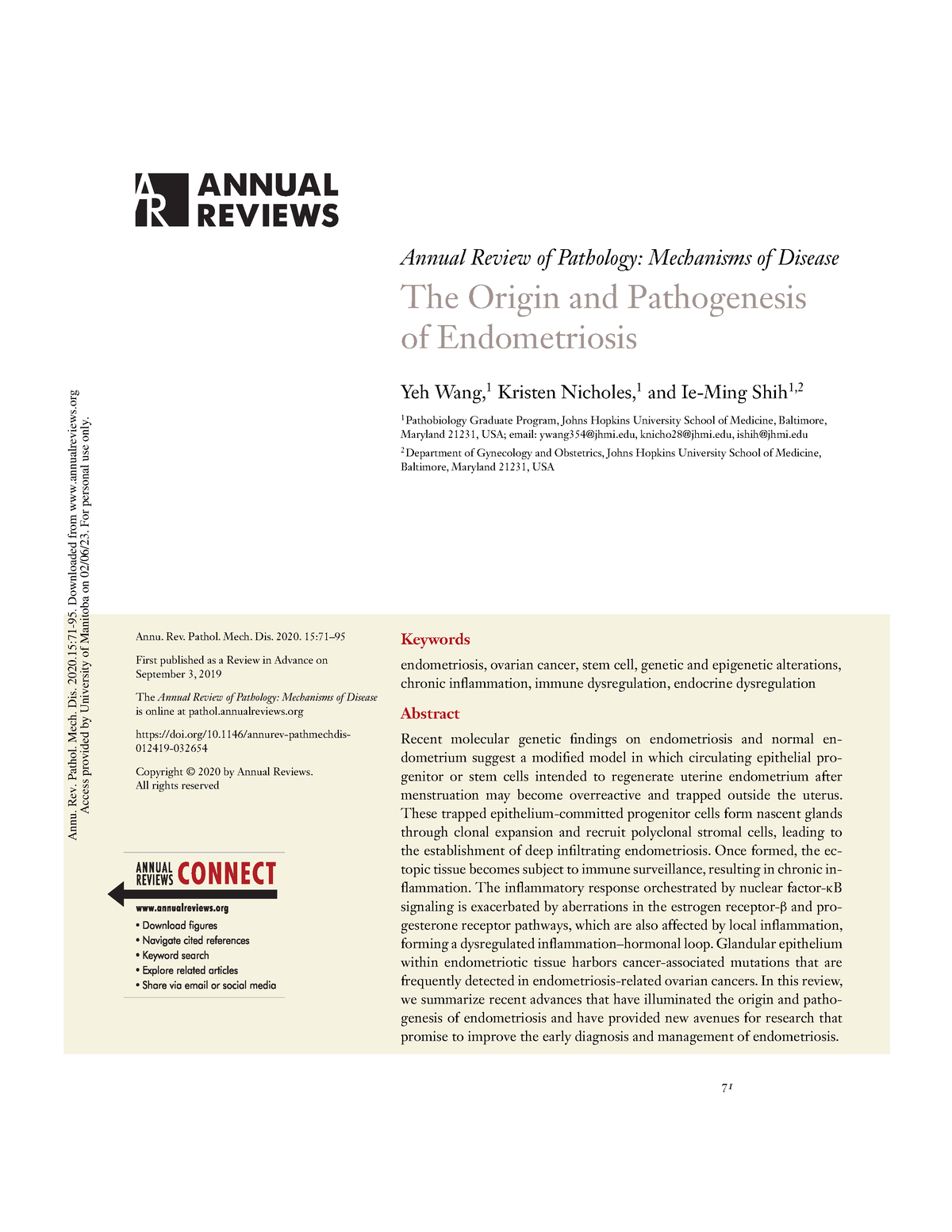昼夜节律、日常压力与神经退行性疾病
IF 34.5
1区 医学
Q1 PATHOLOGY
Annual Review of Pathology-Mechanisms of Disease
Pub Date : 2024-10-18
DOI:10.1146/annurev-pathmechdis-031521-033828
引用次数: 0
摘要
昼夜节律或 24 小时节律紊乱是多种神经退行性疾病最常见的早期症状之一。昼夜节律紊乱一度被认为只是疾病过程的结果,但越来越多的证据表明,昼夜节律在神经退行性疾病中起着因果或促成作用。昼夜节律钟控制着细胞生物化学的许多方面,包括与神经元存活和死亡有关的应激途径。鉴于针对这些日益普遍的疾病的疾病调整疗法匮乏,这种认识可能会在新疗法的开发方面带来突破。在这篇综述中,我们将介绍昼夜节律钟的背景,并重点探讨可能在神经退行性病变中起关键作用的一些潜在机制。本文章由计算机程序翻译,如有差异,请以英文原文为准。
Circadian Clocks, Daily Stress, and Neurodegenerative Disease
Disrupted circadian or 24-h rhythms are among the most common early findings in a wide range of neurodegenerative disorders. Once thought to be a mere consequence of the disease process, increasing evidence points toward a causal or contributory role of the circadian clock in neurodegenerative disease. Circadian clocks control many aspects of cellular biochemistry, including stress pathways implicated in neuronal survival and death. Given the dearth of disease-modifying therapies for these increasingly prevalent disorders, this understanding may lead to breakthroughs in the development of new treatments. In this review, we provide a background on circadian clocks and focus on some potential mechanisms that may be pivotal in neurodegeneration.
求助全文
通过发布文献求助,成功后即可免费获取论文全文。
去求助
来源期刊
CiteScore
62.60
自引率
0.00%
发文量
40
期刊介绍:
The Annual Review of Pathology: Mechanisms of Disease is a scholarly journal that has been published since 2006. Its primary focus is to provide a comprehensive overview of recent advancements in our knowledge of the causes and development of significant human diseases. The journal places particular emphasis on exploring the current and evolving concepts of disease pathogenesis, as well as the molecular genetic and morphological changes associated with various diseases. Additionally, the journal addresses the clinical significance of these findings.
In order to increase accessibility and promote the broad dissemination of research, the current volume of the journal has transitioned from a gated subscription model to an open access format. This change has been made possible through the Annual Reviews' Subscribe to Open program, which allows all articles published in this volume to be freely accessible to readers. As part of this transition, all articles in the journal are published under a Creative Commons Attribution (CC BY) license, which encourages open sharing and use of the research.

 求助内容:
求助内容: 应助结果提醒方式:
应助结果提醒方式:


